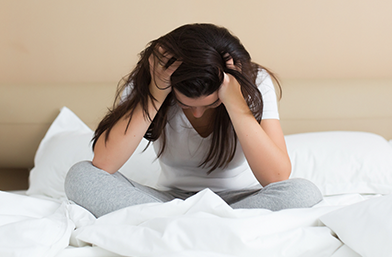


Preventing insomnia and reducing the likelihoodĢ019 research uses the “3P or the Spielman model” to explain how insomnia occurs, becomes chronic, and becomes self-perpetuating. A 2019 study found that lavender aromatherapy increases melatonin levels in the blood, which helps promote sleep. Examples include chamomile such as in tea and lavender.

People have used herbs for centuries to promote relaxation and sleep. Learn more about melatonin for sleep here.

Despite the lack of FDA approval for any indication, the American Academy of Family Physicians considers melatonin as the first line of treatment for insomnia. However, the Food and Drug Administration (FDA) does not regulate supplements such as melatonin. Over-the-counter sleeping aids are also available to people, which may contain melatonin. melatonin receptor antagonists (ramelteon).benzodiazepine receptor agonist drugs (temazepam).Prescription drugs used for chronic insomnia include: This addresses factors that contribute to persistent insomnia, including: Cognitive behavioral therapy: This approach helps worries or anxiety with more reassuring beliefs and attitudes.Stimulus control therapy: This type restricts poor sleep behaviors such as late-night use of gadgets and eating in bed so that people associate the bed with sleep.Sleep restriction therapy: This therapy restricts total sleep time to increase a person’s drive for sleep and help improve sleep efficiency.Sleep hygiene: This type includes educating individuals about lifestyle changes such as:.Insomnia treatment may also include lifestyle changes and therapy. However, they may opt to combine them with medications in people with long histories of insomnia. Acute insomnia may link to increased cortisol levels, while chronic insomnia occurs because of deficient levels of gamma amino-butyric acid.ĭoctors offer non-pharmacological treatments first. Studies show that the two may also differ in their biological cause. When a person no longer mentions a life stressor and focuses on insomnia as the problem, it may signify that they have transitioned from acute to chronic insomnia. They must be present at least three times weekly for over 3 months.Ĭlinicians may identify acute and chronic insomnia based on a person’s description. The triggering event may be any life event that significantly reduces a person’s quality of life compared to their ideal, or it could be distress in a current situation.Įxperts identified life stress as the primary precipitant for acute insomnia.Ĭhronic insomnia refers to sleep difficulties that cause clinically significant functional stress or impairment. In acute insomnia, a precipitating factor plays a major role. Doctors also refer to it as adjustment, episodic, and short-term insomnia. Insomnia may differ in terms of frequency and duration.Īcute insomnia refers to sleep disruptions between 1 week and 3 months. It is also more common in older adults and people with medical and mental disorders. Studies worldwide show that it affects 10–30% of the population, while others show as high as 50–60%.Īpproximately 25% of people in the United States experience acute insomnia every year, and 75% of these people recover without developing chronic or persistent insomnia.įemales are twice as likely to have insomnia as males. Insomnia can lead to significant consequences, including: These symptoms cause some form of daytime impairment, such as irritability and excessive daytime sleepiness. Terminal: This involves early morning awakening and the inability to return to sleep.Ī person’s sleep complaint may include any or a combination of the above.Maintenance: This is the difficulty of maintaining sleep it involves frequent or prolonged awakenings throughout the night.Sleep onset: This refers to difficulty falling asleep.It may happen at different times in a person’s sleep period:
#ANXIETY INSOMNIA HELP MANUAL#
The Diagnostic Manual of Mental Disorders Fifth Edition (DSM-V) defines insomnia as dissatisfaction with one’s sleep quality or quantity.


 0 kommentar(er)
0 kommentar(er)
